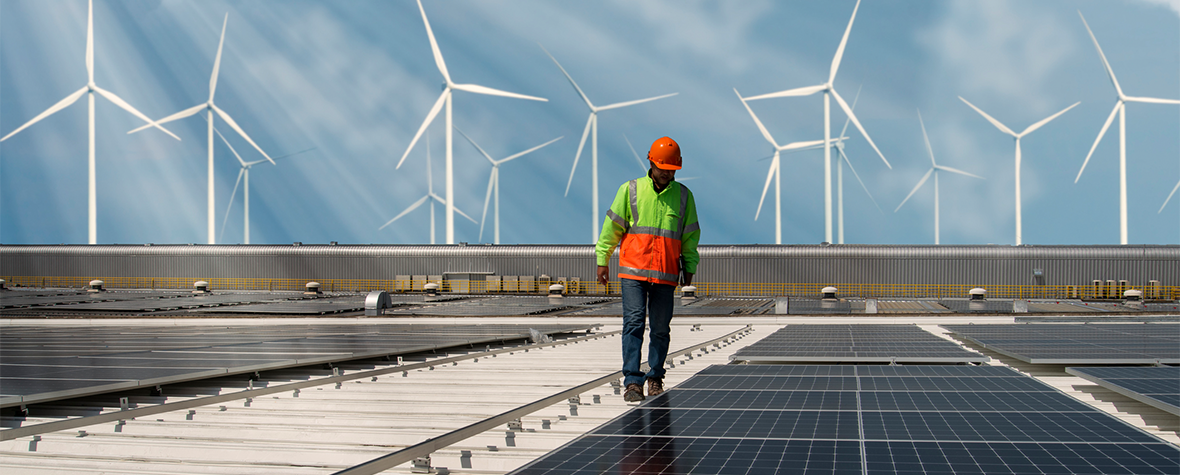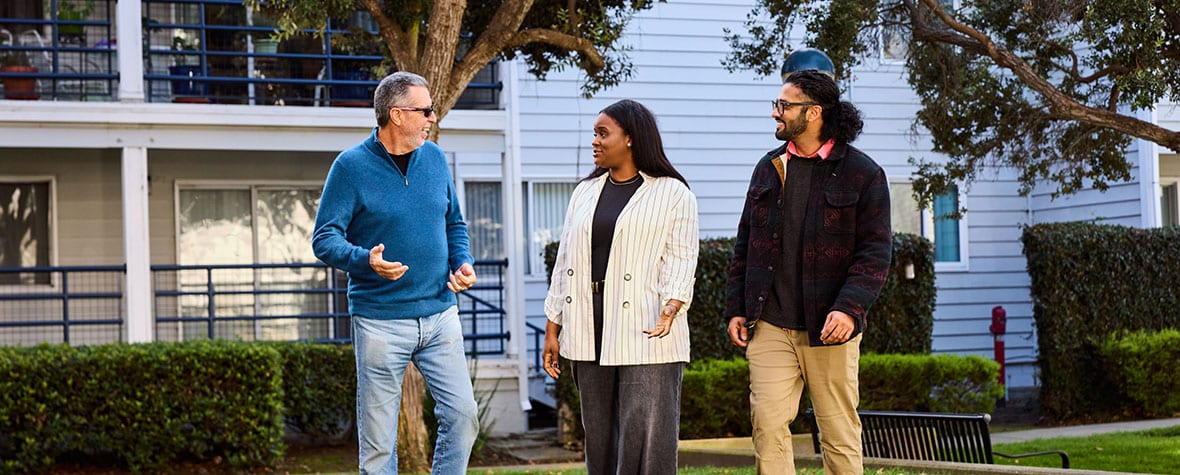This series explores the ways environmental justice is essential to MCE’s mission to address climate change by reducing energy-related greenhouse gas emissions through renewable energy and energy efficiency.
Over the past several weeks, California’s fire season began with a literal bang. An unprecedented lightning storm struck the Bay Area, igniting fires across the region and blanketing the state and western United States with a choking layer of smoke. These “historical” events are becoming increasingly common as climate change worsens. Moving forward, the only way to prevent these weather events from worsening in the future is to rapidly reduce our carbon emissions. Clean energy is a large part of the solution.
As states like California look to a clean energy future to help mitigate the worst impacts of climate change, other changes are also occurring. Fossil fuel industry jobs are decreasing and employees who’ve spent their lives in the trade are looking for work. In 2016, 55% of US jobs in the energy sector were in traditional fossil fuels – coal, oil, and gas – representing 1.1 million jobs across the country. In 2019, E2’s Clean Jobs America analysis found there were nearly 3.3 million jobs in clean energy, outpacing employment in fossil fuels 3-1. A just transition to a clean energy economy also means creating long-term, well-paying employment opportunities in the renewable energy industry.
Building a Sustainable Workforce
MCE’s Sustainable Workforce & Diversity Policy outlines our commitment to supporting the clean energy workforce in our contracting for power resources, procuring goods and services, and implementing hiring initiatives. The policy calls for quality training, apprenticeship, and pre-apprenticeship programs; fair wages; and direct hiring practices that promote diversity in the workplace. MCE also supports workforce development training and career pathways by constructing local renewable projects, using local vendors, and implementing customer programs such as energy efficiency services and deployment of electric vehicle infrastructure.
Local Hire and Prevailing Wage Requirements
MCE supports clean energy jobs through our local hire and prevailing wage requirements for projects in our service area. All projects built through MCE’s Feed-In Tariff and FIT+ programs must meet 50% local hire and prevailing wage requirements. These policies, coupled with MCE project labor agreements increase access to jobs directly in the community, supporting the growth of a clean energy economy.
Community Partnerships
MCE has partnered with a number of workforce development agencies, including the Marin City Community Development Corporation (MCCDC), Rising Sun Energy Center, RichmondBUILD, and Future Build. MCCDC and Rising Sun have supported MCE’s energy efficiency programs, providing employees with access to green-collar jobs, while supporting energy conservation in their communities.
MCE’s partnership with RichmondBUILD has helped students develop construction, numeracy, and literacy skills, and later connected them with related jobs for large-scale solar installation projects like MCE Solar One.
https://mcecleanenergy.org/wp-content/uploads/2020/09/Workforce-Development-Achievements-2010-2020.jpg
In Pittsburg, MCE helped coordinate the development of a new call center to serve our customers. We partnered with Future Build to train students on call center basics, call handling, energy data, and more. Graduates were offered positions at the new call center.
Workforce Education & Training Program
With $2.24 million recently awarded from the California Public Utilities Commission, MCE is working with our partner, the Association for Energy Affordability, to develop our new Workforce, Education, & Training program. This program will gather input from local nonprofit partners, community colleges, local government agencies, and the existing labor force to understand the challenges in the current market and how these challenges are complicated by COVID-19. The model is focused on building trainee-to-employee workforce programs with a “learn & earn” model that compensates trainees for attending workshops and other learning opportunities. This model makes it possible for trainees to take time off from other paying opportunities to be retrained – an essential link for the labor skills needed to build on-ramps to stable, secure career pathways.
Statewide Impacts
Over the past 10 years, MCE has partnered with a diverse workforce to help build over 677 megawatts of new energy projects around the state. These projects represent over 5,000 new jobs, 1.4 million labor hours, and $1.6 billion reinvested outside MCE’s service area. By buying and building new renewable energy, we can address climate change by reinvesting in our economy and our workforce.
However, building a sustainable workforce is about more than just developing new renewable projects. A just transition to a clean energy future means investing in high-quality, family- supporting jobs in the communities where new energy resources are being developed. A just transition must create new relationships of power for the future, building systems where communities are empowered to grow into a better and brighter future. MCE is committed to creating new frameworks that make a just transition possible, focusing on people over profit, while continuing to engage and transform our policies to reflect the needs of our communities.




